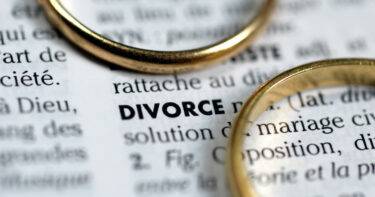
29
Oct 2020
Deeds of Variation
When somebody passes away, their personal wealth will be distributed in accordance with the provisions of their Will, or if the individual did not have a Will, by the Rules of Intestacy. In some circumstances, a Beneficiary may wish to vary the way in which the estate is to be distributed. This can be done by entering into a ‘Deed of Variation’ which is a legal document that allows a named beneficiary / beneficiaries change the distribution of an estate.
Why might a Beneficiary wish to vary the distribution of an estate?
A Beneficiary may wish to gift some of their entitlement to others if they do not wish to inherit that themselves, for reasons such as equal distribution to other beneficiaries, or to make provision for someone that was not included in the Will.
Another reason that a Deed of Variation may be recommended is for inheritance tax reasons, where new legalities brought in since the Will was made mean that there is a more tax efficient way to deal with the estate. A recent example being to retain the tax status of the ‘Residence Nil Rate Band’, which allows those who gift their property to direct descendants to benefit from an additional tax free sum of up to £175,000, which is only available in particular circumstances.
Another reason to enter into the Deed may be plan for care home fees. For example, by severing a Joint Tenancy of a Property (although this does not come without risk as the local authority could still argue that the individual has purposely deprived themselves of their assets by entering into the Deed). A severance of a joint tenancy may also be beneficial to obtain a co-ownership discount.
What are the benefits of entering into a Deed of Variation?
The main reason why a Deed of Variation may be beneficial is so that the gift of the money being ‘redirected’ from one beneficiary to another is not deemed as being a gift made from the original Beneficiary. Without a formal Deed of Variation, if the original Beneficiary gifted a certain sum then passed away within 7 years of making that gift, it would be deemed as a lifetime transfer relevant for calculating the inheritance tax of the original Beneficiary. By entering into a Deed of Variation, the gift is ‘read back’ into the Will so that it is as if the gift was made by the Will, protecting the original Beneficiary’s tax position.
As the estate is taxed as if the deceased had made those substituted dispositions, there may be adverse effects on the Inheritance Tax/Capital Gains tax position. It is therefore important to seek legal advice when considering entering into a Deed of Variation so that we can advise on the pros and cons and considerations relevant to the circumstances.
What are the formalities of a Deed of Variation?
To make an efficient Deed of Variation, there are some legal formalities that must be consulted (not exhaustive) :-
- The Deed must be entered into within 2 years from the date of the individual’s death;
- The Deed must be made in writing;
- The Beneficiaries must be at least 18.
If you are considering gifting your inheritance to another person, or would wish to ascertain whether there is a more tax efficient way to deal with an estate, we would recommend that you seek legal advice as to the benefits of entering into a Deed of Variation, so that the Deed is legally correct so as to protect the position of the original Beneficiaries and tax position of the estate.
Contact our experienced Private Client team on 0800 015 0340 to find out more information and arrange an appointment.
- Like this ? Share with friends





